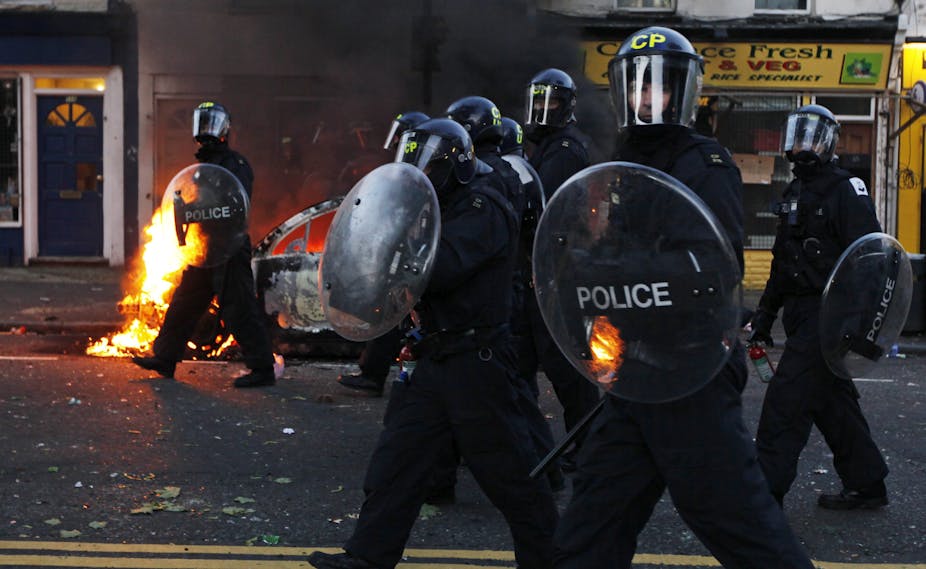The violence that took hold of London at the weekend has spread to other English cities. Sixteen thousand police were on the streets of the capital on Tuesday night, but the trouble has extended to Manchester, Salford, Liverpool, Wolverhampton, Nottingham, Leicester and Birmingham. Rioting and looting broke out following a protest about the death of Mark Duggan, who was shot dead by police in Tottenham in North London on 4th August.
The Conversation spoke to Dr Alyce McGovern, Convenor of the Criminology Program at the University of New South Wales to explore what the police can do to get the situation under control.
The police have been having trouble controlling the situation. What has been wrong with their strategy so far?
I think they weren’t really predicting what eventuated - that the violence would erupt in a number of different places. The sheer scale of the rioting, and the fact that it has spread to Nottingham, Manchester and Birmingham among others has taken them by surprise. They didn’t expect that it was going to move outside the boundaries.
What should the police do from here?
That’s a difficult question. Where I’m sitting the police could play to one of their strengths and use the media. People seem to be hiding their faces while they riot and loot, but the media can expose their identities. Police can exploit that fear of being arrested, and point out that they are easily identifiable in those images.
What role has the media played in exacerbating the crisis?
There’s always an argument about whether the media make these things worse or make them better. It’s hard to lay blame on the media - the role it plays now is a lot more complicated. TV pictures can be broadcast immediately and people can see these things happen live. Rioters are using new media and technology to communicate and organise targets, but the police can also harness social networking sites to communicate and track people.
Are the police behind the rioters in terms of knowing how to use social media?
Police in the UK are quite forward in using social media - more so than in Australia. Because policing is more localised there, they can communicate direct with the public using Twitter and so on. So I wouldn’t say that it is an uneven balance.
The Member of Parliament for Tottenham in North London, David Lammy, has called for Blackberry to shut down its mobile messaging service to stop the rioters using it to communicate. Is that a heavy handed response?
I can understand why he wants to do it, but it’s not going to solve the problem. People will find other ways to communicate.
The Home Secretary Theresa May has appeared to rule out using water cannon. Do you think the tactics need to be stepped up to stop the rioting?
If you look at some of the history of rioting particularly in the UK – a lot of it comes down to disharmony between police and minority communities. Heavy handed police tactics are simply more damaging in the long run. Throughout history there has been sections of society who feel disconnected - you’ll never get rid of it, and upping the response won’t help.
What can the police do to improve community relations after this crisis is over?
They need to talk to the community. People haven’t felt they’ve been helped by the police and other agencies. It’s not just a law enforcement problem to be solved. The budget cuts across a whole range of areas is one reason why the community is unhappy.

